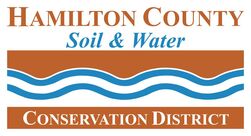Cool Season Vegetables for Central Indiana
Gardeners and experienced farmers call early spring, winter, and late fall "shoulder seasons." Shoulder seasons are outside the typical growing season. Some vegetables grow well during the shoulder seasons. In fact, growing some vegetables in cooler weather has benefits. These include fewer insects, more seasonal moisture, and better taste.
Vegetables that Grow in the Cold
Not every vegetable can grow in cooler and colder temperatures. Below is a list of those that can categorized by their tolerance to cold and frost.
Semi-Hardy Vegetables (Tolerates Light Frost)
Semi-hardy vegetables will tolerate light forest. With a hard frost, these plants need protection from plastic or a cloth to continue growing.
Hardy Vegetables (Tolerates Hard Frost)
Hardy vegetables can be started in the late summer to early fall. It is best to start them indoors and transplant once ready. Growing in a hoop house (small or large) throughout the winter will allow them to continue to grow in most scenarios.
Tender Vegetables (Damaged by Light Frost)
A light frost will damage tender vegetables (listed below). You can extend their life by covering them with plastic or cloth in anticipation of frost.
Vegetables that Grow in the Cold
Not every vegetable can grow in cooler and colder temperatures. Below is a list of those that can categorized by their tolerance to cold and frost.
Semi-Hardy Vegetables (Tolerates Light Frost)
Semi-hardy vegetables will tolerate light forest. With a hard frost, these plants need protection from plastic or a cloth to continue growing.
- Beets
- Carrot (Spring Planting) (About growing carrots)
- Cauliflower
- Celery
- Chard
- Chinese Cabbage
- Endive
- Lettuce
- Parsnip
- Potato
- Salsify
Hardy Vegetables (Tolerates Hard Frost)
Hardy vegetables can be started in the late summer to early fall. It is best to start them indoors and transplant once ready. Growing in a hoop house (small or large) throughout the winter will allow them to continue to grow in most scenarios.
- Broccoli
- Brussels
- Cabbage
- Collards
- Kale
- Kohlrabi
- Mustard
- Onion
- Parsley
- Peas
- Radish
- Spinach
- Turnip
Tender Vegetables (Damaged by Light Frost)
A light frost will damage tender vegetables (listed below). You can extend their life by covering them with plastic or cloth in anticipation of frost.
- Beans
- Cucumber
- Sprouts
- Eggplant
- Muskmelon
- Okra
- Pepper
- Greens
- Pumpkin
- Squash
- Sweet Corn
- Sweet Potato
- Tomato
- Watermelon
